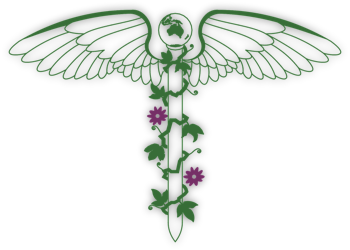Pondering the Pancreas
by Dr Jenna
 As it is a change of seasons, I would like to focus on the pancreas as I find that pancreas an amazing organ. It is not even really solid, it looks like a large worm that stretches across your upper abdomen and it lies behind the stomach and attaches into the small intestine. What is most amazing about the pancreas is that it has two distinct roles in the body - it is both an endocrine gland and an exocrine gland.
As it is a change of seasons, I would like to focus on the pancreas as I find that pancreas an amazing organ. It is not even really solid, it looks like a large worm that stretches across your upper abdomen and it lies behind the stomach and attaches into the small intestine. What is most amazing about the pancreas is that it has two distinct roles in the body - it is both an endocrine gland and an exocrine gland.
As an exocrine gland the pancreas produces digestive enzymes, every time we eat the pancreas is stimulated to dump digestive enzymes into the small intestine. The ducts from the small intestine connect with the ducts from the gallbladder and join together to dump both bile and digestive enzymes. The major digestive enzymes called proteases that the pancreas produces are trypsinogen and chymotrypsinogen. Once these are in the intestine they are cleaved to their active forms of trypsin and chymotrypsin, lipase and amylase are secreted to a lesser degree. These enzymes further help in the breakdown of carbohydrates, fats and proteins.
The pancreas also secretes phospholipase A2, lysophospholipase and cholesterol esterase and bicarbonate is produced by the pancreas to help to neutralize the acid from the stomach as it enters the small intestine. The hormones that regulate the pancreas exocrine function are produced by the stomach and duodenum. This allows all the organs to work in conjunction with one another. Things that can interfere in this synergy are alcohol, medications that reduce acid and things that slow down the gastric emptying time. For everything to work correctly it is like an orchestra - each part must come in at its correct place otherwise you have a mess. You can damage the exocrine function of the pancreas with alcohol, medications and certain viruses, this can create swelling in the pancreas called pancreatitis, it can cause stomach pain that some can mistake for reflux or indigestion. Inflammation can damage the secretory function and decrease your digestive enzymes. The excretion from the pancreas can also be blocked by gallstones that get lodged in the common pancreatic duct.

The endocrine function of the pancreas occurs in the Islet Cells. There are four types of cells in the Isles of Langerhans that produce glycogen, insulin, somatostatin and pancreatic polypeptide. These work with the sugar balance in the body and again must work in conjunction with each other. Insulin is produced in the beta cells and is important in our uptake of sugar into the cells. Insulin stops working for two reasons: one is an autoimmune attack on the beta cells themselves which destroys the cells and stops your body’s production of insulin and this is what causes type-1 diabetes that must always be treated with insulin as your body does not produce it. The second is Type-2 Diabetes which is not caused by damage to the pancreas itself but of the insulin becoming less effective. I like to look at insulin as a key that opens the lock to get the sugar from the blood into the cell. When we use the key too much it starts to bend and then we need to produce more keys to get the lock open, this can be reflected in high insulin. Eventually the pancreas will wear out from sending out all those keys and the production of insulin also becomes a problem. If you can catch diabetes before this happens there is a good possibility you can reverse the cause by following a healthy diet and regular exercise. Not all Type 2 Diabetics will require insulin but some may. Many of the drugs used in this type of diabetes is aimed at getting the insulin to work better or in assisting to production of insulin, again balance is required.
If you look at the body from a chakra system the pancreas is the endocrine organ that is related to our third chakra also referred to as the Solar Plexus. The third chakra is about will power, control, right action and ambition, weakness here can create lack of will power, over achieving (type A personality), shame and self-consciousness. I always find it fascinating how this relates to the physical function of the organ and the causes and outcome of diseases in this organ. Keep in mind that this organs function is all about balance and homeostasis.

